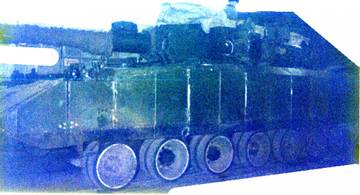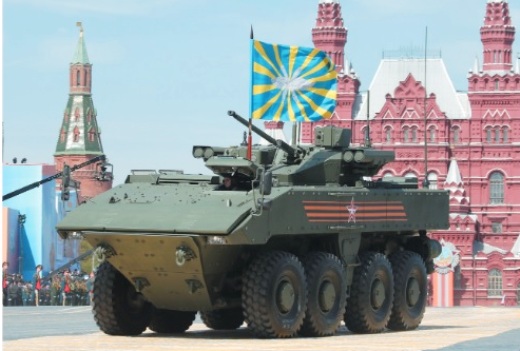Vladimir Isachenkov, The Associated Press
NIZHNY TAGIL, Russia — It has a remote-controlled turret, it bristles with state-of-the-art defence systems and its computerized controls make driving it feel “like playing a video game.” Russia’s Armata tank, which its creator says can be turned into a fully robotic combat vehicle, is the crowning glory of a sweeping military modernization drive that is rumbling forward amid a perilous confrontation with the West over Ukraine.
But President Vladimir Putin’s expensive arms build-up faces major hurdles as Russia’s economy sinks under the weight of Western sanctions and falling oil prices. The 22-trillion ruble (about US$400-billion) program, which envisages the acquisition of 2,300 new tanks, hundreds of aircraft and missiles and dozens of navy ships, was conceived back at the time when Russia’s coffers were brimming with petrodollars.
Putin vowed that the military upgrade would go ahead as planned, and this year’s military budget rose by 33 per cent to about 3.3 trillion rubles (nearly US$60 billion). Some observers predict that the Kremlin will inevitably have to scale down the plans amid a grinding recession.
NIZHNY TAGIL, Russia — It has a remote-controlled turret, it bristles with state-of-the-art defence systems and its computerized controls make driving it feel “like playing a video game.” Russia’s Armata tank, which its creator says can be turned into a fully robotic combat vehicle, is the crowning glory of a sweeping military modernization drive that is rumbling forward amid a perilous confrontation with the West over Ukraine.
But President Vladimir Putin’s expensive arms build-up faces major hurdles as Russia’s economy sinks under the weight of Western sanctions and falling oil prices. The 22-trillion ruble (about US$400-billion) program, which envisages the acquisition of 2,300 new tanks, hundreds of aircraft and missiles and dozens of navy ships, was conceived back at the time when Russia’s coffers were brimming with petrodollars.
Putin vowed that the military upgrade would go ahead as planned, and this year’s military budget rose by 33 per cent to about 3.3 trillion rubles (nearly US$60 billion). Some observers predict that the Kremlin will inevitably have to scale down the plans amid a grinding recession.






